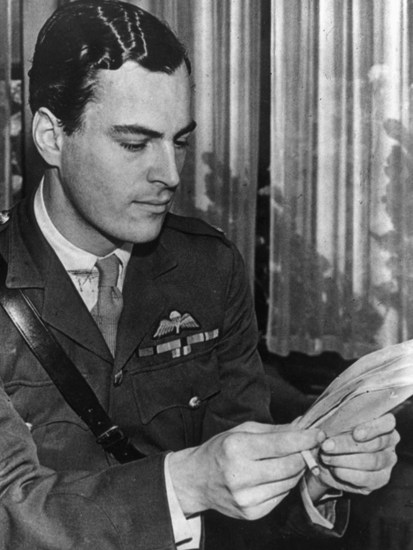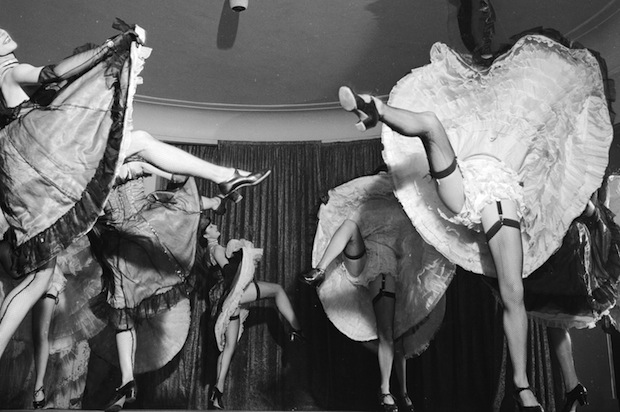Twenty-odd years ago, while on holiday in the deep Mani at the foot of the Peloponnese, I got into conversation with an old and only partially reconstructed Greek communist shop-owner. I had been showing him a bit of pottery I had found on the sea bed at Asomati, and he wanted to know what had brought me to the Mani in the first place and was it Patrick Leigh Fermor? I said no — not strictly true — and he seemed pleased. Leigh Fermor, he said — and he was not prepared to elaborate — had not been good for Greece.
It came as something of a surprise, as in those days at least Leigh Fermor’s writ seemed to run the length and breadth of the Mani — you could have filled a division with the old men who claimed to have fought alongside him in Crete — but the shop-owner would certainly not have been alone. From the days of Byron and the scandalous ‘Greek loan’ of the 1820s Greeks have always had good cause to be wary of Englishmen bearing gifts. And the villagers of Crete during the second world war — who had to watch their houses burned and their men executed in reprisal for one or other SOE action — had every bit as much reason to wonder as their ancestors had whether British help was worth the cost — who had seen the gold destined for Greece disappear into bottomless City pockets back in London.
‘What a queer set,’ the great American doctor and philanthropist, Samuel Gridley Howe, famously wrote of the phil-hellenes who swarmed after Byron to fight for Greek freedom: ‘What an assemblage of romantic, adventurous, restless, crack-brained young men.’ And in the men of the Cretan branch of the SOE we have their natural successors. In the wake of the British retreat from Crete, the island was effectively abandoned by the military, and for the next three years it became a sort of playground for the brave and gifted amateur, a home away from their bizarre Cairo home for all those swordstick-brandishing, fancy-dress wearing, regimental misfits, temperamentally better suited to the dangers, licence, heroics, excitement, hardships and romance of guerrilla warfare than to the drudgery and discipline of regular army life.
It is a moot point whether they did Greece very much more good than their Byronic predecessors — or did anything much for the wider war effort, for that matter — but that is something with which Wes Davis’s Ariadne Objective does not unduly concern itself. You would scarcely guess from this book the extent and the bitterness of the rivalries that tore apart wartime Greek society, either. This is first and foremost an adventure story and it is in the personalities and drama and not the politics of the long Cretan struggle against the occupying forces that he is interested.
It is an understandable enough bias — he has a fine cast of characters to work with in addition to Leigh Fermor: John Pendlebury, Xan Fielding, Billy Moss and the rest — but whatever the dustjacket claims, the capture of the German General Kreipe that forms the climax of the book is hardly a ‘little-known episode of second world war history’.
Davis makes a good job of holding together the various strands of a complicated narrative. But a glance at the book’s endnotes, at the long trails of ‘ibids’ that reveal his major sources for each chapter — Leigh Fermor, Fielding, Moss and Artemis Cooper’s Cairo in the War for colour and extra padding — only reinforces the feeling that for all its skill this is essentially a book made out of other books: a reworked account of a familiar story that, as Davis’s liberal use of quotations unfortunately underlines, only makes one want to go back to the originals.
It is an odd reflection on a book of this sort, too, but for a man who must know Crete as well as Davis does — he worked for two years on the excavations at Kavousi — there is curiously little feel for the physical brutality of the landscape that forms the background to his story. He is very good at giving a sense of the logistical nightmare that bedevilled SOE operations on the island, but in among the catalogue of missed rendezvous and aborted landings, of failed parachute drops and stomach-churning sea voyages, of cancelled missions and botched communications, Crete itself in all its extremes of temperature and its harsh, unforgiving terrain — the Crete that, for Leigh Fermor would always be Greece in spades, Greece ‘only more so’ — somehow fails to put in an appearance. And that is a pity.
Got something to add? Join the discussion and comment below.
Get 10 issues for just $10
Subscribe to The Spectator Australia today for the next 10 magazine issues, plus full online access, for just $10.
Available from the Spectator Bookshop, £16. Tel: 08430 600033
You might disagree with half of it, but you’ll enjoy reading all of it. Try your first month for free, then just $2 a week for the remainder of your first year.














Comments
Don't miss out
Join the conversation with other Spectator Australia readers. Subscribe to leave a comment.
SUBSCRIBEAlready a subscriber? Log in